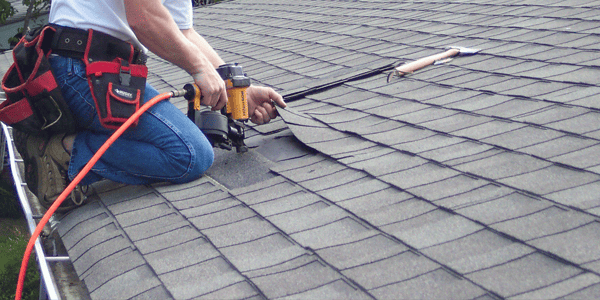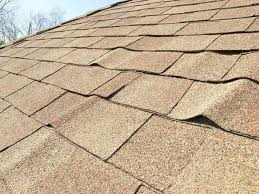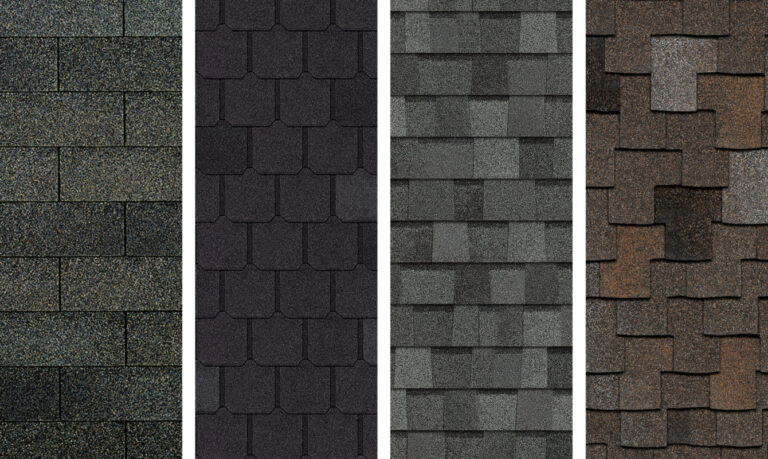A roof replacement is a significant investment. In fact, the average cost for a new roof can range anywhere between $4 and $40 per square foot — or between $5,000 and $20,000.
Therefore, the last thing you want to have to do is shell out more of your hard-earned money should something go wrong due to improper installation or damaged materials. This is exactly why it’s common for homeowners to inquire about what type of roof warranties are available to them. A decent roof warranty will cover any issues caused by:
- Poor workmanship
- Defective materials
- Improper installation
- Sudden damage
Of course, not all roofing companies will offer warranties that protect you against every possible scenario, which is why it’s important to get to know what types of warranties are realistically out there. This is also something that can help you narrow down your search when choosing among roofing contractors for your roof replacement.
Below we’ll talk about the main types of roof warranties, their conditions, and more.
The 3 Main Types of Roof Warranties
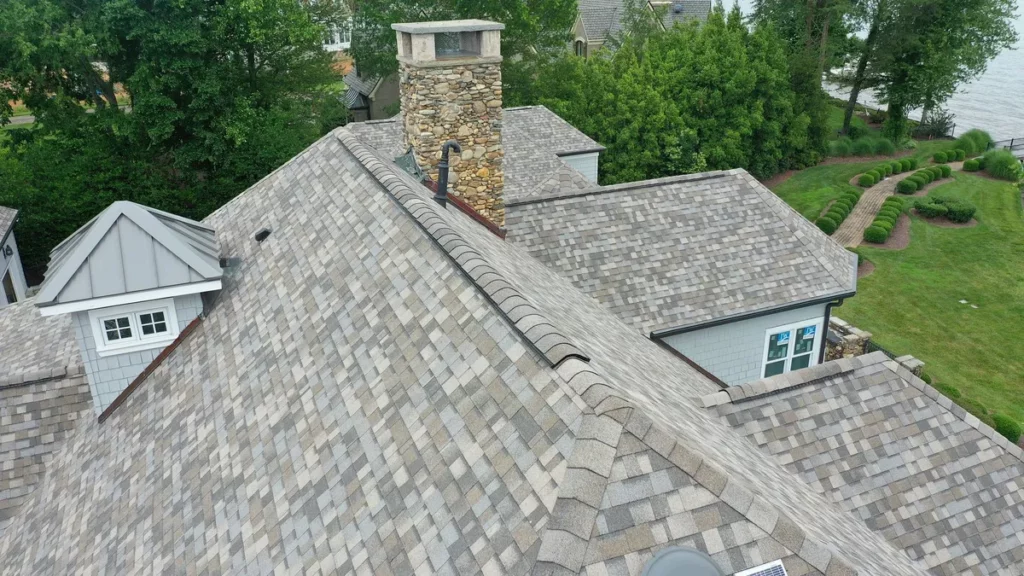
While it may seem as if there’s a laundry list of roof warranties you can choose from, there are actually only three types. This includes:
- The standard manufacturer’s warranty
- The workmanship warranty
- The extended manufacturer’s warranty
Let’s take a closer look at what each one entails:
1) Standard Manufacturer’s Warranty
Most roofing materials, especially asphalt shingles, come with what is referred to as a “basic limited lifetime warranty”. This is essentially the roofing industry standard, where your roofing materials are covered as long as you own your home. (Some may be transferable, meaning if you choose to sell your home, the warranty will transfer to the new homeowners).
However, the degree of protection you’ll get from this warranty will depend on the manufacturer’s definition of the term “limited”, meaning:
- The manufacturer will explicitly only cover the cost of defective materials, which means you’ll still be responsible for any labor charges involved in removing and disposing of the defective materials and installing the replacement materials.
- The manufacturer will only cover the cost of replacing defective materials for a certain number of years. From there, they’ll likely offer prorated coverage. However, the initial coverage for however many years set by the manufacturer will also cover labor charges in addition to the materials. The prorated period will only cover a portion of the materials — not the labor.
- The manufacturer will only provide coverage against factory defects rather than materials rendered defective due to improper installation or issues with other components such as your ice and water shield, ventilation, underlayment, flashing, etc. However, these individual components may be covered under different warranties provided by the manufacturer.
Standard manufacturer’s warranties typically last between 25 and 50 years. However, some may only offer protection for five years — so it’s important to make sure you read the fine print.
2) Workmanship Warranty
Also referred to as a contractor’s warranty, the workmanship warranty is typically offered by the roofing contractor to cover the installation behind each new roof. These warranties will vary in duration and the roofing contractor in question — some even offer lifetime coverage.
It should be noted that while a longer material coverage period is ideal, workmanship warranties are just as important because they’ll protect the material costs as well should an error occur due to improper installation techniques.
Contractor warranties typically cover the following:
- The cost of labor
- The cost of new materials
- The cost of any damages done to the home’s structure or interior due to improper installation. This includes damage done to any furnishings or personal belongings as well.
However, these warranties also specifically exclude:
- Damages caused by storms or high winds
- Water damage caused by ice dams
- Post-installation roof alterations that cause damages
- Issues cost by foot traffic
- Leaks caused by debris or falling objects, such as tree limbs
Workmanship warranties can have a lifespan of 25 to 30 years. However, it’s very common for these types of warranties to only guarantee protection for 5 to 10 years.
It should be noted that any reputable roofing company will always offer a workmanship warranty to guarantee their work and offer you peace of mind. Of course, it’s important to keep in mind that other factors such as industry experience, track record, and commitment to customer care matter more than any workmanship warranty out there.
3) Extended Manufacturer Warranty
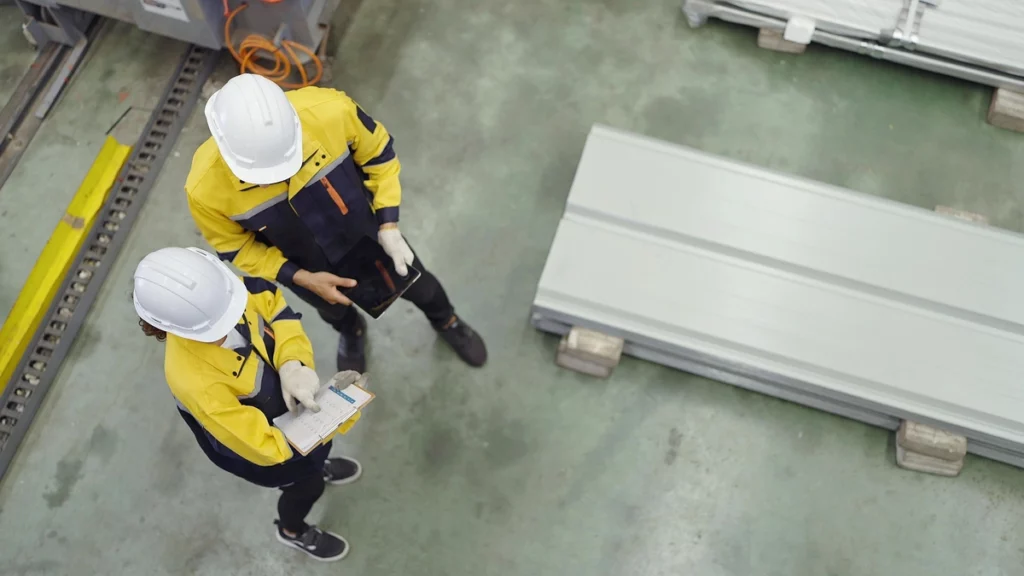
Extended manufacturer warranties offer the most comprehensive coverage when it comes to new roofing systems. Leading roofing material manufacturers like Owens Corning and GAF (among others) know exactly how their roofing materials are meant to perform and how well they should last — and that there’s an innate connection to the installation process.
Therefore, the option of an extended manufacturer warranty exists to provide long-lasting value and reassurance to homeowners. Of course, these warranties are only offered through authorized roofing companies that are certified to work with certain manufacturers’ materials.
Extended warranties are also only offered at an additional cost for completely new roofing systems, which include the following components:
- Underlayment
- Ice and water shields
- Hip and ridge cap shingles
- Soffit and ridge vents
- Starter shingles and field shingles
As far as coverage goes, the best extended warranties will provide a range of protection, such as:
- Coverage for every roofing component with the exception of flashing, roof decking, and fasteners.
- Continuous coverage for defective materials, which typically includes labor costs for repairs or replacements.
- Workmanship coverage against installation errors. This particular portion of the coverage may have a lifetime term with a prorating period after a certain number of years — but it often includes labor costs, tear-off costs, and disposal costs.
The extended manufacturer’s warranty will last an average of 50 years. Of course, its lifespan will depend on a variety of factors, including:
- The materials being used
- The roofing company performing the installation
- The manufacturer
- Other roofing components being installed
Even if you’ve opted for an extended warranty from your roofing contractor, there are certain things that will be excluded unless you make a request and are willing to pay extra. An example of this would be damage caused by heavy snowfall.
What Causes a Warranty to Become Null and Void?
It’s also incredibly important to understand that your warranty will come with a healthy amount of fine print. The most important section of your fine print will include your warranty becoming voided under certain circumstances.
These circumstances typically include:
- Not maintaining your roof properly, such as carrying out regular cleanings
- Not having your roof inspected annually
- Using a different roofing contractor to carry out maintenance or repairs
- Carrying out any DIY work, regardless of how minor it may be
Fortunately, many reliable roofing companies will offer maintenance and inspection packages to ensure you don’t accidentally void your warranty and to ensure that your roof is kept in excellent shape without having to think about it.
Tips For Protecting Your Roof Warranty

Of course, purchasing a maintenance plan isn’t enough to keep your warranty intact. To ensure that your roof is properly protected by the paperwork, here’s what you’ll want to focus on:
- Making sure you read the fine print. Understanding exactly what your warranty entails is the first step in ensuring you don’t mistakenly void it.
- Registering the warranty. While some warranties are automatically included with the materials or installation, they’re useless if you don’t register and activate them within a set period of time.
- Stick with the original roofer. It’s in your best interest to only work with the roofing contractor that installed your roofing system and supplied you with the warranty (or warranties). No roofer will offer to cover the work of someone else, which is why they’ll void your warranty if you hire someone else.
- Keep up with inspections. Regular inspections are a standard requirement when it comes to roof warranties. This is because they allow roofers to spot any minor damages before they become both major issues and expenses.
Find a Roofer and Roof Warranty That’s Right For You
While it’s important to ensure you’re getting the best possible roof warranty, it’s even more important to find a reputable and skilled roofer for the job.
The roofing team at Tidds Roofing is expertly trained and certified. Get in touch with us today to learn about the warranties we offer as well as our financing options!
